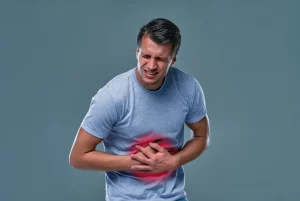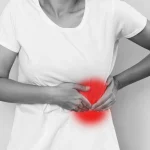Hives Causes – Hives, also known as urticaria, are raised, itchy areas of skin usually caused by an allergic reaction. Hives on the skin can be very uncomfortable and even painful.

If you have hives, the first thing you should do is try to identify the trigger. Hives on the skin become triggered by many things, including allergies to food, pollen, or pet dander. Once you know what is causing your hives, you can take steps to avoid them.
In most cases, the hives rash will go away within a few days. However, if your hives last longer than a week or are accompanied by other symptoms like swelling of the face, difficulty breathing, or chest pain, you should see a doctor. Hives can sometimes signify a more severe condition, so it’s essential to get medical help if you are experiencing any worrisome symptoms.
Hives Causes and Risk Factors
There are many hives causes. Common triggers include:
– Allergies to food, pollen, or pet dander
– Medications, including over-the-counter and prescription drugs
– Infections, such as viral illnesses or bacterial infections
– Physical stimuli, such as heat, cold, or sun exposure
– Emotional stress

It’s not always possible to identify the trigger of your hives. However, if you can figure out what causes them, you can take steps to avoid them. If you have allergies, for example, you might need to carry around an allergy medication like epinephrine in case you have a reaction. If you think medication might trigger your hives, talk to your doctor about changing your prescription.
Some things may make you more likely to develop hives on the skin. These include:
– A family history of hives or other allergies
– A history of other allergies, such as asthma or hay fever
– Having another condition that is associated with hives, such as thyroid disease or lupus
If you have a family history of hives or other allergies, you may be more likely to develop hives yourself. You can talk to your doctor about ways to reduce your risk.
Hives Symptoms
The most common symptom of hives is a raised, itchy area of the skin. Hives can appear anywhere on the body, including the face, lips, tongue, throat, hands, feet, and genital area. They can range in size from a few millimeters to several centimeters. Hives can be round or oval-shaped and may look like welts.
Hives are usually very itchy. The itchiness can range from mild to severe. Some people also experience a burning or stinging sensation. Hives can appear and disappear quickly, or they can last for hours or days. In some cases, hives may come and go for months or even years.
In some cases, hives trigger other symptoms. These can include:
– Swelling of the face, lips, eyes, or throat
– Difficulty breathing or swallowing
– Chest pain
– Abdominal pain

Hives Treatment
Hives treatment is pretty simple. Most cases of hives will go away on their own within a few days. If your hives are not too uncomfortable, you can wait for them to clear up independently.
There are some things you can do to ease your symptoms in the meantime. These include:

– Taking an antihistamine to reduce itching and swelling
– Applying a cool compress to the affected area
– Wearing loose, comfortable clothing
– Avoiding hot showers or baths
If your hives are severe or last longer than a week, you should see a doctor. Hives can sometimes signify a more severe condition, so it’s essential to get medical help if you are experiencing any worrisome symptoms.
Your doctor will likely ask about your medical history and do a physical exam. They may also order blood tests or skin tests to rule out other conditions. If an allergy causes your hives, you may need to see an allergist for further testing.
Hives Prevention
There is no sure way to prevent hives. However, there are some things you can do to reduce your risk. If you have allergies, for example, you can try to avoid your triggers. If you think medication might trigger your hives, talk to your doctor about changing your prescription.
You can also take steps to reduce stress in your life. Stress can trigger or worsen hives, so it’s essential to find ways to manage your stress levels. Exercise, relaxation techniques, and therapy can all help reduce stress. Maintaining a proper diet will also have positive benefits and outcomes.



